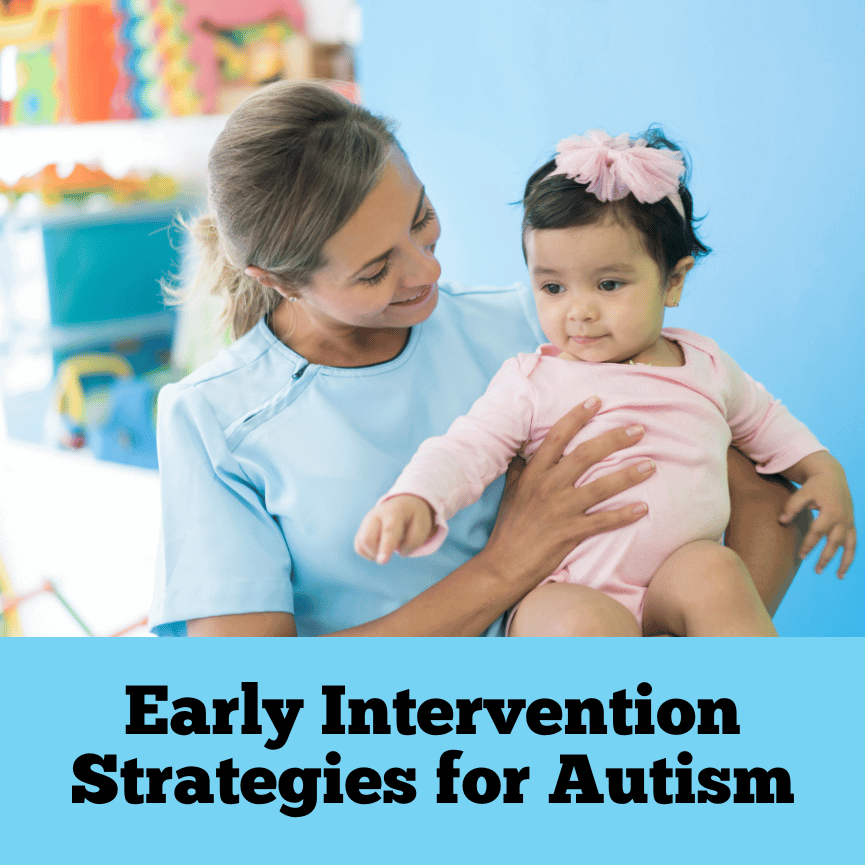
- Aug 07, 2024
- 129 Views
- 0 Comments
Effective Early Intervention Strategies For Autism
Early intervention can make a world of difference for children diagnosed with Autism Spectrum Disorder (ASD). Recognizing the significance of timely and targeted support is crucial for fostering developmental progress and enhancing the quality of life for these children and their families.
Understanding Early Intervention
Early intervention encompasses a range of therapeutic and educational services designed to support young children with developmental delays or disabilities. The primary goal is to address developmental issues early on, maximizing the child's potential for growth and learning.
Recognizing Early Signs of Autism
Early signs of autism can vary widely, but some common indicators include:
- Limited eye contact
- Delayed speech and communication skills
- Repetitive behaviors or intense interests
- Difficulty in social interactions
Types of Early Intervention Strategies
Behavioral Interventions
Applied Behavior Analysis (ABA) is one of the most widely used behavioral interventions. It focuses on improving specific behaviors such as social skills, communication, and academics through reinforcement strategies.
Developmental Approaches
DIR/Floortime emphasizes emotional and relational development, tailoring activities to the child's individual needs and strengths. This approach encourages children to build emotional connections and improve communication.
Educational Interventions
The TEACCH Program is an educational approach that uses structured teaching methods to support children with autism. It involves visual aids and individualized learning plans to cater to the unique needs of each child.
Speech and Language Therapy
Communication is a critical area for children with autism. Speech therapists work on developing verbal and non-verbal communication skills, helping children to express themselves more effectively.
Occupational Therapy
Occupational therapists help children with autism improve their sensory processing and motor skills. This can involve activities to enhance hand-eye coordination, fine motor skills, and daily living skills.
Implementing Behavioral Interventions
ABA therapy is based on principles of learning and motivation. Success stories often highlight significant improvements in behavior and learning abilities, illustrating the effectiveness of these interventions.
Developmental Approaches in Early Intervention
DIR/Floortime focuses on engaging children through play and relationship-building activities. This method helps children develop emotional and social skills, which are foundational for other areas of learning.
Educational Programs for Children with Autism
The TEACCH Program provides a structured environment that helps children with autism thrive. By customizing education plans, teachers can address each child's specific challenges and strengths, fostering a supportive learning atmosphere.
The Role of Speech and Language Therapy
Communication challenges are a hallmark of autism. Speech and language therapy can help children develop essential communication skills, using techniques such as picture exchange communication systems (PECS) and social stories.
Occupational Therapy for Sensory and Motor Skills
Occupational therapists address sensory processing issues, helping children manage sensitivities to sounds, textures, and other stimuli. They also work on motor skills, enabling children to perform everyday tasks more independently.
Parental Involvement in Early Intervention
Parents play a vital role in the success of early intervention programs. Empowering parents through training and support can enhance the effectiveness of the interventions, as they can reinforce skills and strategies at home.
Building an Effective Early Intervention Plan
An effective early intervention plan starts with a comprehensive assessment and diagnosis. Setting clear goals and objectives, tailored to the child's unique needs, is essential for tracking progress and making necessary adjustments.
Choosing the Right Professionals
Finding qualified therapists and specialists is crucial. Collaboration among professionals, including pediatricians, therapists, and educators, ensures a holistic approach to the child's development.
Monitoring Progress and Making Adjustments
Regular assessments are vital to measure progress and adapt strategies as needed. This ongoing process helps in addressing any emerging challenges and ensuring the intervention remains effective.
Challenges in Early Intervention
Common obstacles include limited access to services, financial constraints, and the emotional toll on families. Addressing these challenges requires comprehensive support systems and advocacy for better resources and policies.
Early intervention for autism is a powerful tool that can significantly impact a child's developmental trajectory. By recognizing early signs, implementing effective strategies, and involving parents, we can create a supportive environment that fosters growth and learning for children with autism.



Comments - 0 comments till now